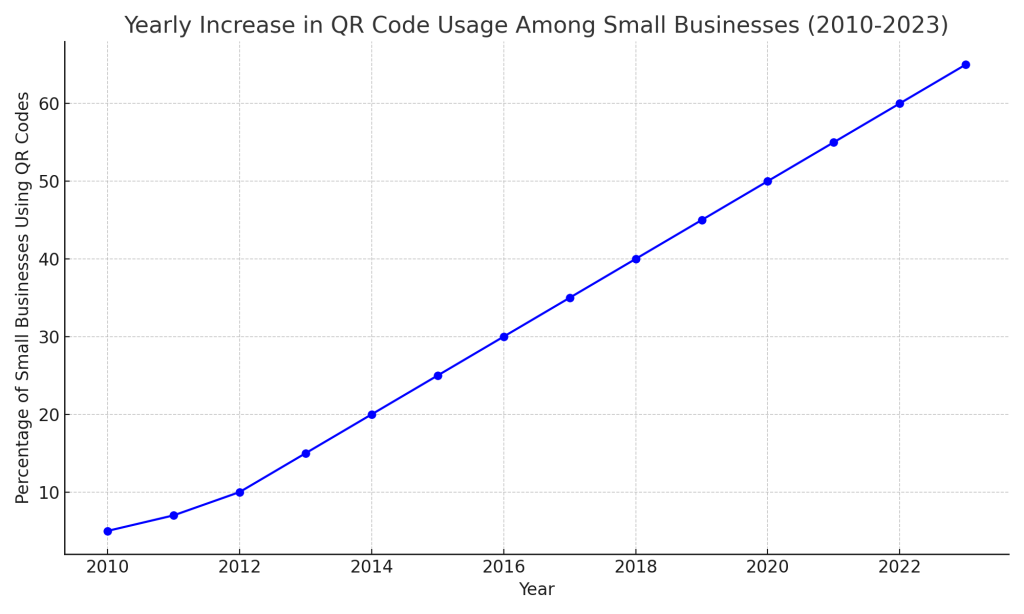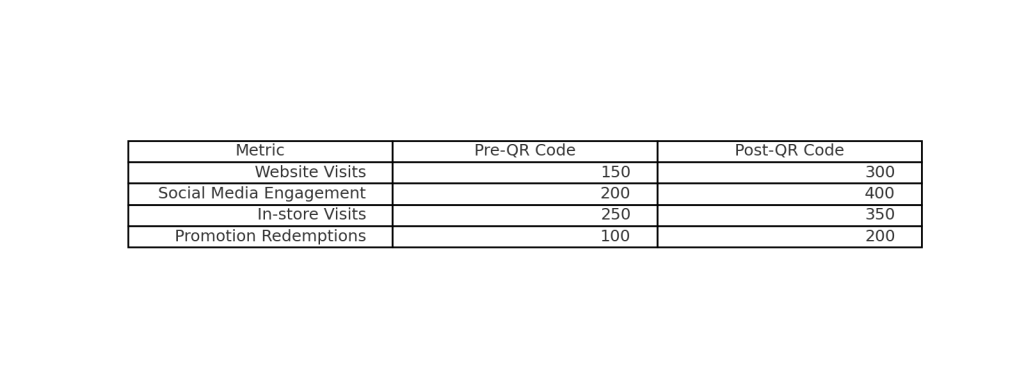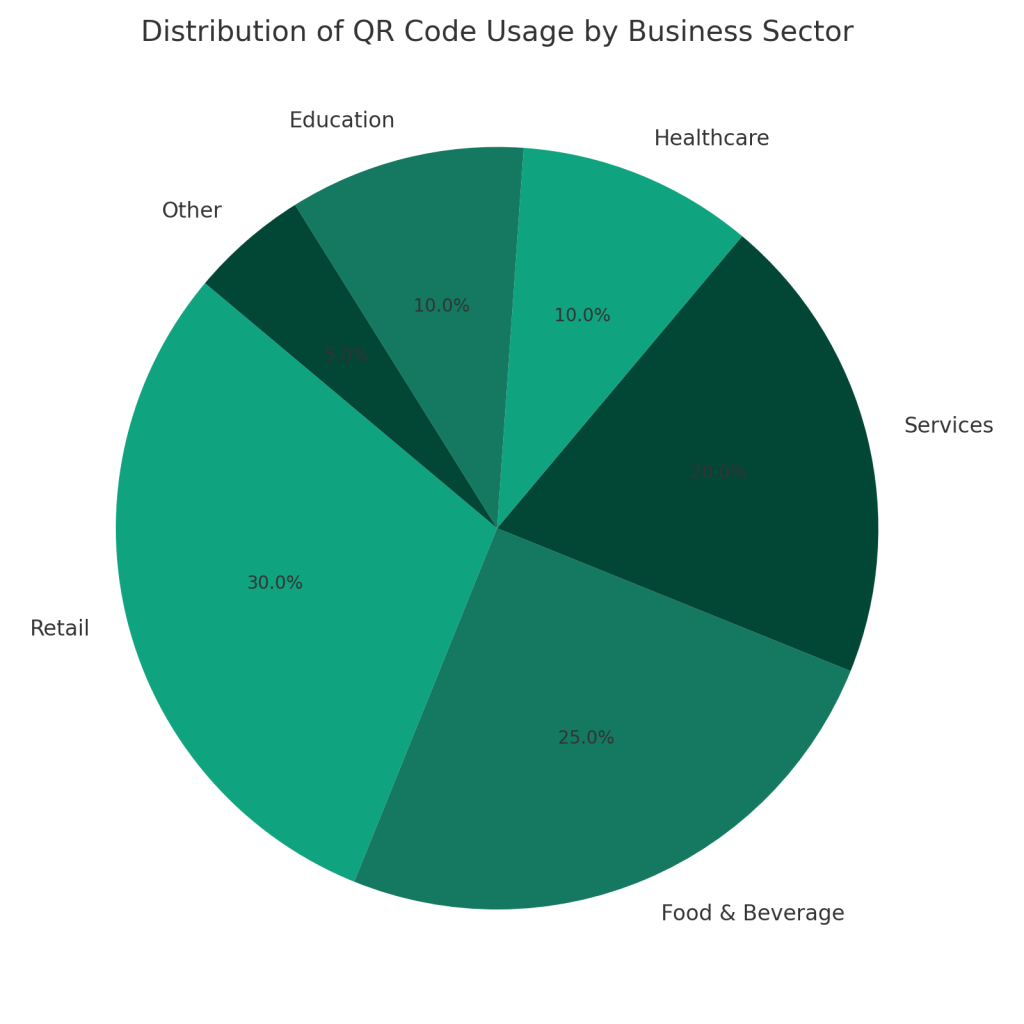Free Business QR Code Generator
Business QR Code Generator User Guide
Getting Started
The Business QR Code Generator is a simple and effective tool designed to create QR codes containing business information. This can include company details, contact information, addresses, and more.
Step-by-Step Instructions
- Open the Generator
- Navigate to the page where the QR Code Generator is located.
- Enter Business Information
- Fill in the fields with your business details:
- Company Name: Enter the full name of your business.
- Contact Information: Provide mobile, phone, and fax numbers. Ensure these are numbers only.
- Email: Enter a valid email address.
- Street: Provide the street address of your business.
- City and Zip: Enter the city and postal code.
- State and Country: Specify the state and country where your business is located.
- Website: If applicable, provide your business website URL.
- Fill in the fields with your business details:
- Generate QR Code
- Once all relevant information is entered, click the “Generate QR Code” button.
- A QR code will appear in the designated area. This code contains all the information you’ve entered.
- Download or Copy QR Code
- Download: To save the QR code, click the “Download QR Code” button. This will save the QR code as an image file on your device.
- Copy: Use the “Copy QR Code” button to copy the QR code image to your clipboard. You can then paste it into documents or image editing software.
Tips for Effective Use
- Accuracy: Ensure all information entered is accurate and up-to-date.
- Simplicity: Only include essential information to prevent the QR code from becoming too complex.
- Testing: After generating the QR code, test it with a QR scanner to ensure it correctly displays all the information.
Applications
- Business Cards: Add the QR code to your business cards for quick sharing of your contact details.
- Marketing Materials: Include it in brochures, flyers, and posters for easy access to your business info.
- Digital Platforms: Use it on your website or social media profiles for a quick link to contact details or location.

QR Codes in Small Business
In the digital age, small businesses increasingly adopt innovative technologies to enhance customer engagement and streamline operations. One such technology is the QR (Quick Response) Code. Originally designed for tracking automotive parts, QR codes have found a new lease of life in the business world, particularly among small enterprises seeking cost-effective marketing and operational tools.
The Rise of QR Codes in Business
Historical Overview
The evolution of QR codes in the business landscape is a testament to the adaptability and utility of this technology:
- 1994-2010: Initial Use in Manufacturing and Logistics Initially developed in Japan for tracking automotive parts, QR codes were predominantly utilized in manufacturing and logistics sectors. Their capacity to store a significant amount of data compared to traditional barcodes made them ideal for complex supply chain management.
- 2011-2020: Expansion into Marketing and Retail With the proliferation of smartphones, QR codes began to emerge as a versatile tool in marketing and retail. Businesses started leveraging them for various purposes, from providing product information to linking to promotional content online. This period marked a shift from industrial to consumer applications, with QR codes becoming more visible in advertisements, product packaging, and in-store displays.
- 2021-Present: Surge in Popularity Amidst the Pandemic The COVID-19 pandemic catalyzed a significant surge in QR code usage. Amidst health concerns and the need for contactless solutions, QR codes became an essential tool for businesses. They were used for contactless payments, digital menus in restaurants, and virtual check-ins, highlighting their utility in maintaining business operations while adhering to safety protocols.
Usage Statistics
- Adoption Rate Among Small Businesses A study highlighted that approximately 60% of small businesses have incorporated QR codes into their operations. This high adoption rate reflects the accessibility and effectiveness of QR codes for businesses of all sizes. Small businesses, in particular, find QR codes appealing due to their low cost and ease of implementation.
- Customer Engagement and Familiarity Over 70% of customers in urban areas have reported scanning a QR code at least once, indicating a high level of familiarity and acceptance among consumers. This statistic is crucial for businesses as it shows the readiness of the market to engage with QR code-based initiatives. The ease of use—simply scanning with a smartphone—contributes to their widespread acceptance and growing popularity.
These trends and statistics underscore the evolving role of QR codes in the business world, marking them as a versatile and valuable tool for enhancing customer interaction, marketing strategies, and operational efficiency, especially for small businesses looking to capitalize on digital tools without incurring significant expenses.
How QR Codes Benefit Small Businesses
QR codes offer a range of benefits that are particularly advantageous for small businesses, which often need to maximize resources and efficiency:
- Cost-Effective Marketing QR codes are inexpensive to create and can be printed on a wide array of materials. This affordability makes them highly accessible for small businesses operating on limited budgets. Instead of investing in expensive digital platforms or traditional advertising, a QR code can be a cost-efficient way to link customers to digital content or offers.
- Versatility in Application The utility of QR codes extends far beyond simple information sharing. They can be used to direct customers to websites, digital menus, promotional videos, online stores, and social media pages. This versatility allows small businesses to use QR codes for various marketing and operational purposes, from enhancing customer experience to streamlining transactions.
- Trackability and Analytics QR codes can be integrated with analytics tools, enabling businesses to track user engagement and the effectiveness of marketing campaigns. This data-driven approach helps small businesses understand customer behavior better and optimize their marketing strategies accordingly.
- Ease of Use QR codes are simple to generate and scan, making them user-friendly for both businesses and customers. This ease of use reduces barriers to customer engagement, as most people with a smartphone can scan a QR code, and businesses do not need specialized equipment to create or utilize them.
Generating Business QR Codes: A Step-by-Step Guide
- Identify the Purpose Determine the primary goal for your QR code. This could range from driving website traffic, enhancing social media engagement, to promoting a special offer. Clear objectives will guide the design and placement of the QR code.
- Choose a Generator Select a QR code generator that meets your specific needs. Key features to consider include customization options, the ability to create dynamic QR codes (which can be updated after printing), and integrated analytics for tracking performance.
- Customize Your QR Code Design the QR code to align with your brand identity. This can include incorporating brand colors, embedding a logo, or creating a unique shape. Customization helps make your QR code stand out and reinforces brand recognition.
- Test the QR Code Before deploying, test the QR code across various devices and scanning apps to ensure compatibility and functionality. This step is crucial to avoid customer frustration or missed engagement opportunities.
- Deploy Effectively Integrate the QR code into your marketing materials. This can include physical items like business cards, flyers, and product packaging, as well as digital platforms like emails, websites, and social media.
- Track and Analyze Monitor the performance of your QR code campaigns. Analyze metrics such as scan rates, user demographics, and subsequent user actions. This data is invaluable for adjusting your strategy and improving future campaigns.
Challenges and Considerations
While QR codes present numerous advantages, there are challenges and considerations that businesses, particularly small ones, must be aware of:
- Security Concerns QR codes can potentially be used for malicious purposes, such as phishing attacks. Unscrupulous actors might replace legitimate QR codes with fraudulent ones, leading users to harmful websites. It’s crucial for businesses to ensure their QR codes are secure and to educate customers on safe scanning practices. Regularly monitoring and maintaining QR code integrity is essential to prevent misuse.
- Overdependence on Technology Overreliance on QR codes as the sole marketing strategy can be risky. Not all customers are comfortable or familiar with using this technology. Especially in demographics less accustomed to smartphones, this could lead to alienation. It’s important to maintain a balanced approach in marketing strategies, combining both traditional and digital methods.
- Quality Control Issues Poorly generated or printed QR codes can be problematic, leading to a negative customer experience. QR codes that do not scan correctly due to low resolution, quick wear and tear, or poor placement can frustrate customers. Ensuring high-quality printing and testing codes in different real-life conditions are vital steps.
Future Trends and Innovations
The future of QR codes in business looks bright, with new innovations enhancing their utility:
- Augmented Reality (AR) Integration Some businesses are experimenting with combining QR codes and augmented reality (AR) to create more engaging and immersive experiences for customers. For example, scanning a QR code could launch an AR experience where customers interact with virtual elements overlaid in the real world, such as trying on clothes virtually or visualizing furniture in their space.
- Dynamic QR Codes Unlike static QR codes, dynamic QR codes allow businesses to change the linked content without needing to generate and distribute a new code. This flexibility is particularly useful for campaigns where content needs to be updated regularly, like changing menus, promotional offers, or event details.
Case Studies for Business QR Code Generator
These real-world examples illustrate the impact of QR codes on small businesses:
- Local Cafe A cafe increased its social media following by 30% by using QR codes linking to their Instagram page. This simple strategy not only boosted their online presence but also fostered a more engaged community around their brand.
- Artisan Shop An artisan shop implemented QR codes to provide detailed product information, resulting in a 20% increase in customer engagement. This approach allowed customers to access extensive product details, stories behind the crafts, and even artist bios, enhancing the overall shopping experience.
Graphs and Tables (Hypothetical)
Graph:
Yearly Increase in QR Code Usage Among Small Businesses (2010-2023).

Table:
Comparison of Customer Engagement Metrics – Pre and Post QR Code Implementation.

Pie Chart:
Distribution of QR Code Usage by Business Sector (e.g., Retail, Food & Beverage, Services).

Final Thoughts How to Choose the Best QR Code Generator for Business
When selecting the best QR code generator for business, several key factors come into play, such as ease of use, customization options, tracking capabilities, and cost. Here’s a comprehensive overview of what to consider:
1. Features and Customization
- Custom Design: Look for a generator that allows you to customize the appearance of your QR codes. This includes adding colors, logos, and even creating a unique design that aligns with your brand identity.
- Dynamic QR Codes: Choose a service that offers dynamic QR codes, which can be updated after printing. This is useful for changing the destination URL without having to regenerate and redistribute a new QR code.
2. Tracking and Analytics
- Data Analysis: The ability to track and analyze how your QR codes are being used is crucial. Look for a generator that provides detailed analytics, such as the number of scans, user location, and time of scans.
- Real-time Tracking: Some generators offer real-time tracking, which can be particularly beneficial for time-sensitive campaigns or promotions.
3. Ease of Use
- User Interface: The generator should have a straightforward, user-friendly interface. This makes it easier to create, manage, and track QR codes, especially if you are dealing with multiple codes.
- Tutorials and Support: Good customer support and helpful tutorials can be invaluable, especially if you’re new to using QR codes.
4. Integration Capabilities
- Compatibility with Marketing Tools: If you use specific marketing or analytics tools, check whether the QR code generator integrates seamlessly with these platforms.
- Multi-platform Use: Ensure the generated QR codes work well across various devices and operating systems.
5. Pricing and Plans
- Free vs. Paid Services: While there are free QR code generators, they might lack advanced features like customization or analytics. Paid plans typically offer more robust options.
- Subscription Plans: Evaluate the pricing structure to see if it aligns with your budget and business needs. Some services offer monthly or annual subscriptions, while others might have a one-time fee.
6. Security and Reliability
- Secure Codes: Security is a priority, especially to prevent QR code misuse. Ensure the generator provides secure, encrypted QR codes.
- Uptime and Reliability: The service should be reliable with minimal downtime, as any outages can affect the accessibility of your linked content.
For more tools for small businesses, visit: https://www.4menearme.com/tools/

